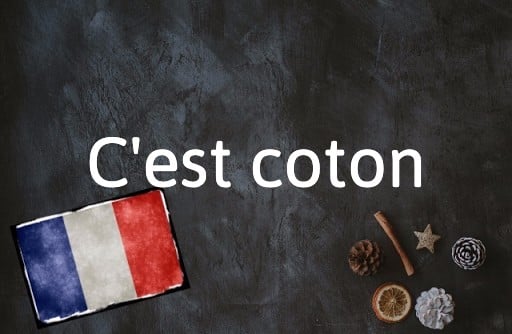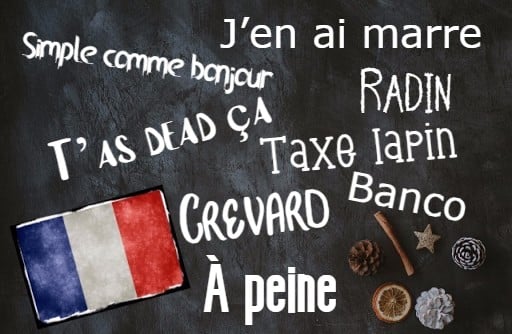Why do I need to know c’est coton?
Because not everything comes easy.
What does it mean?
C’est coton, pronounced “say cot-on”, literally means “it is cotton” and you will frequently find the word coton in clothing labels.
The figurative sense of this expression is more along the lines of “it is difficult/challenging”.
The term dates back to the late 19th century when weaving and spinning mills were a major industry in France.
People working with raw cotton in the mills had to stay highly focused for hours on end to produce a high quality product. The dust created during the cotton processing often caused respiratory illness. It was not uncommon for factory staff to lose fingers in the machinery.
The work was tough and poorly paid – and became synonymous with struggle.
What began as slang for the proletariat of the industrial revolution has lived on through to today.
Use it like this
Trouver un emploi, ça c’était coton – Finding a job was difficult
C’est tout à fait possible, mais c’est coton – It is entirely possible, but challenging
Rester alerte, ça c’est coton – Staying alert is difficult
Effectuer des tâches administratives en France, c’est coton – Doing admin tasks in France is tough
Synonyms
C’est le bagne – it’s difficult
C’est un véritable calvaire – it’s a struggle
C’est difficile/dur/compliqué – it’s difficult/tough/complicated. C’est compliqué is the preferred phrase for someone who is about the reject your request



 Please whitelist us to continue reading.
Please whitelist us to continue reading.
Member comments